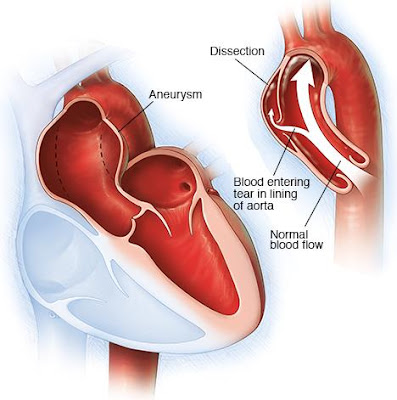Heart valves keep blood flow in the correct direction through the heart. The human heart has four valves, when any one of these heart valves gets damage or work not properly, then the heart starts to pump ineffectively. If the valve problem is simple, then it can be treated with cardiac medications. If the problem is severe, then the patient is advised for a heart valve surgery. Heart valve surgery is performed to either repair or replaces the damaged/poorly working heart valves. It is an open heart surgery.
Mechanical Valve: It is an artificial heart valve. When it gets implanted in the heart, it works as a natural heart valve. The valve opens and closes with each heartbeat, permits proper blood flow through the heart. Though mechanical valve works as a natural valve and does have a long-life, still the patient who is implanted with Mechanical Valve has to take anticoagulation medication to prevent the blood clot formation. It is necessary to take blood-thinning medicines lifelong as the blood tends to form clots when it contacts with an artificial surface.
Biological Heart Valve: These valves are made of tissues; the valves are derived from animals or human donors. The biggest advantage of the biological heart valve is it does not cause blood clots on the surface, hence there is no need for the life-long medication. It firmly replicates the function and form of a normal human valve. However, the biological heart valve is not as durable as the Mechanical valve. It may have a need to be substituted for every 10 years.
Commissurotomy: The heart valve can be affected by several diseases which lead to an improper opening of the valve. It might lead to restricted blood supply through the valve. In Commissurotomy surgical procedure, the restricted opening is cleared. “Stenosis” is called the restricted valve opening. This condition can lead to weakness and breathlessness. In this procedure, the valve is not replaced, but the valve is widened for a proper blood circulation.
Valvuloplasty: It is done to open a stiff heart valve. During the procedure, a catheter is inserted into a blood vessel from the groin area and it is taken through the aorta into the heart. Once the catheter reaches the stiff valve, the surgeon inflates a large balloon at the tip of the catheter until the leaflets of the valve are pushed open. Once the valve is opened, the balloon is deflated and the catheter is removed.
Decalcification: This helps to eliminate the accumulation of calcium from the flaps. The flaps can close properly after detaching the calcium.
Dr. Kuldeep Chulliparambil is the best cardiac surgeon in Kerala who offers his services at the best heart hospital kochi, Renai Medicity. He is an expert cardiac surgeon, especially in Heart valve surgery.
Mail Us @ heartsurgeonindia@gmail.com
Visit Us @ heartsurgeonindia.com
Different types of valves used in surgery include:
Mechanical Valve: It is an artificial heart valve. When it gets implanted in the heart, it works as a natural heart valve. The valve opens and closes with each heartbeat, permits proper blood flow through the heart. Though mechanical valve works as a natural valve and does have a long-life, still the patient who is implanted with Mechanical Valve has to take anticoagulation medication to prevent the blood clot formation. It is necessary to take blood-thinning medicines lifelong as the blood tends to form clots when it contacts with an artificial surface.
Biological Heart Valve: These valves are made of tissues; the valves are derived from animals or human donors. The biggest advantage of the biological heart valve is it does not cause blood clots on the surface, hence there is no need for the life-long medication. It firmly replicates the function and form of a normal human valve. However, the biological heart valve is not as durable as the Mechanical valve. It may have a need to be substituted for every 10 years.
Various processes in the heart valve surgery include:
Commissurotomy: The heart valve can be affected by several diseases which lead to an improper opening of the valve. It might lead to restricted blood supply through the valve. In Commissurotomy surgical procedure, the restricted opening is cleared. “Stenosis” is called the restricted valve opening. This condition can lead to weakness and breathlessness. In this procedure, the valve is not replaced, but the valve is widened for a proper blood circulation.
Valvuloplasty: It is done to open a stiff heart valve. During the procedure, a catheter is inserted into a blood vessel from the groin area and it is taken through the aorta into the heart. Once the catheter reaches the stiff valve, the surgeon inflates a large balloon at the tip of the catheter until the leaflets of the valve are pushed open. Once the valve is opened, the balloon is deflated and the catheter is removed.
Decalcification: This helps to eliminate the accumulation of calcium from the flaps. The flaps can close properly after detaching the calcium.
Dr. Kuldeep Chulliparambil is the best cardiac surgeon in Kerala who offers his services at the best heart hospital kochi, Renai Medicity. He is an expert cardiac surgeon, especially in Heart valve surgery.
Mail Us @ heartsurgeonindia@gmail.com
Visit Us @ heartsurgeonindia.com















